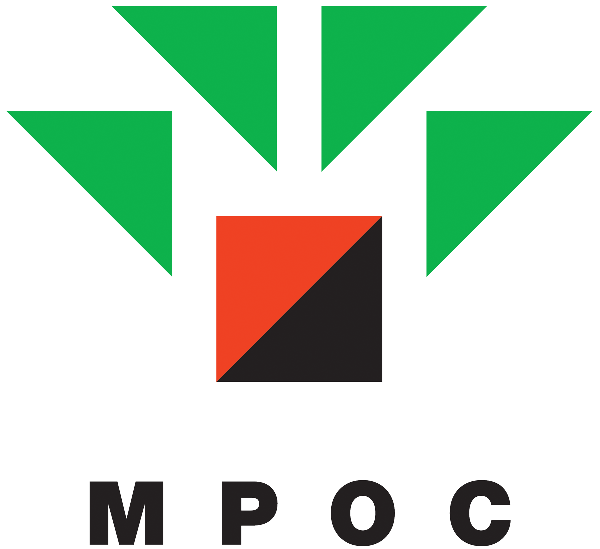Sub-Saharan Africa is undergoing a significant transformation. Home to over 1.2 billion people and growing at a rate of 2.5% annually, the region’s population is expected to double by 2050. Leading this surge are countries such as Nigeria, Ethiopia, the Democratic Republic of Congo, and Tanzania. Nigeria alone is projected to exceed 300 million people by 2035. This rapid demographic expansion is putting increasing pressure on food systems, particularly the demand for essential items like edible oils.
Rising incomes, urbanisation, and changing lifestyles are further accelerating the consumption of cooking oil and food products. Palm oil, already a staple in traditional African cooking, is gaining even greater importance. Its affordability, versatility, and alignment with local tastes make it a preferred choice among consumers. In response to rising demand, both governments and the private sector are stepping up efforts to boost domestic palm oil production.
Palm Oil Production in Sub-Saharan Africa: Steady Growth, Persistent Gap

Over the past decade, Sub-Saharan Africa’s palm oil production has grown steadily, rising from 2.4 million tonnes in 2014 to over 3.5 million tonnes in 2024—a 50% increase driven by investments in countries like Nigeria, Côte d’Ivoire, and Ghana. Nigeria remains the top producer, followed by notable gains in the Democratic Republic of Congo and Gabon. Despite this progress, the region still contributes less than 5% of global output, far behind Malaysia and Indonesia.
If current growth continues, output could exceed 5 million tonnes by 2030. However, demand continues to outpace supply, with over 3.3 million tonnes imported from Malaysia in 2024 alone. This creates a dual opportunity: for African nations to expand local production and for Malaysia to strengthen its role as a key supplier and development partner.
Malaysia’s Strategic Role: Supplying, Supporting, and Investing in Africa
Malaysia’s position as a global leader in palm oil presents multiple avenues to strengthen its partnership with Sub-Saharan Africa.
One immediate contribution is through the supply of certified sustainable palm oil. Malaysia’s national sustainability standard—the Malaysian Sustainable Palm Oil (MSPO) certification—ensures that exported oil is responsibly produced and traceable, providing African importers with a dependable, high-quality product aligned with international benchmarks. This builds trust and lays the foundation for long-term export relationships.
Beyond exports, Malaysia can play an important role in supporting Africa’s efforts to increase local production. Many African plantations still rely on outdated methods and basic tools, resulting in low yields and high post-harvest losses. Malaysian expertise can help bridge this gap—offering technical training, improved planting materials, and farm management solutions. Small-scale mills across the region often suffer from poor oil extraction rates. Malaysian companies can assist by introducing efficient machinery and mobile mills tailored for rural use.
Africa as a Long-Term Growth Market
East and West Africa are the largest palm oil-consuming regions on the continent and remain heavily reliant on imports. However, the extensive informal trade and distribution networks make it challenging to accurately quantify total demand. As a result, the true market potential is likely much greater than current data indicates.
For Malaysian exporters and investors, engaging with Africa now offers a strategic opportunity to strengthen market presence, build long-term trade partnerships, and diversify away from markets where tightening regulations and sustainability requirements may limit future growth.
For African nations, deeper engagement with Malaysia promises enhanced food security, increased production capacity, and stronger value-added industries.
Outlook: Strengthening Malaysia’s Role in Africa’s Growth
As of 2024, Sub-Saharan Africa—with a population of approximately 1.2 billion—imported over 3.36 million metric tonnes of palm oil from Malaysia. By 2030, the region’s population is projected to reach 1.7 billion, adding nearly 500 million new consumers. Even if local production increases from 3.5 million to 5 million tonnes, much of this growth will likely be absorbed by rising household demand, accelerating urbanisation, and the rapid expansion of food processing and consumer goods industries.
If current trends persist, Malaysia’s palm oil exports to Africa could rise significantly in the next 5 years. This projection reflects not just demographic growth, but also increased per capita consumption, deeper trade integration, and the scaling up of Africa’s downstream sectors.
Malaysia is well positioned to meet this demand. Beyond supplying certified sustainable palm oil through the MSPO standard, Malaysia can support the region by sharing technical expertise, improving yields and milling efficiency, and investing in local refining and packaging facilities. These efforts will not only help secure long-term export volumes but also contribute meaningfully to Africa’s food security and industrial development.
Africa is no longer merely an emerging market—it is a strategic growth frontier. For Malaysian exporters, processors, and investors, early engagement through trade partnerships, capacity-building, and joint ventures will ensure continued relevance, stronger market presence, and enduring commercial ties in one of the world’s fastest-growing palm oil regions.
Prepared by; Theventharan Batumalai
Disclaimer: This document has been prepared based on information from sources believed to be reliable but we do not make any representations as to its accuracy. This document is for information only and opinion expressed may be subject to change without notice and we will not accept any responsibility and shall not be held responsible for any loss or damage arising from or in respect of any use or misuse or reliance on the contents. We reserve our right to delete or edit any information on this site at any time at our absolute discretion without giving any prior notice.





